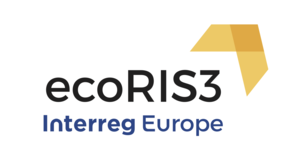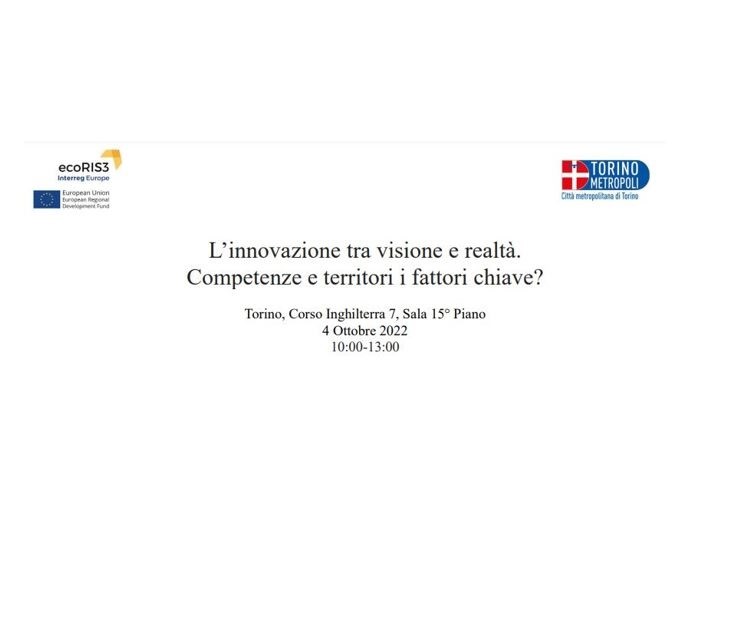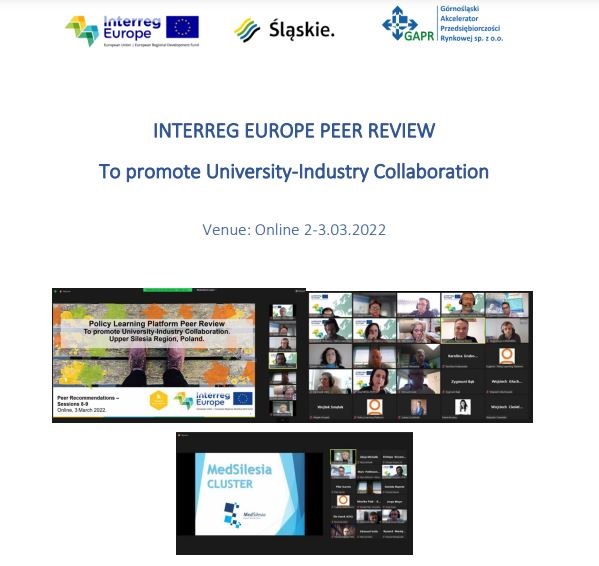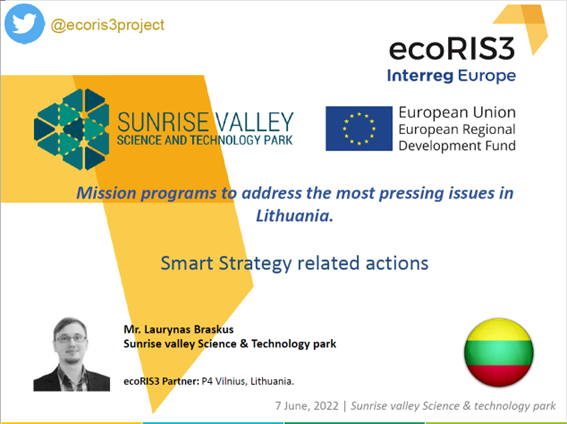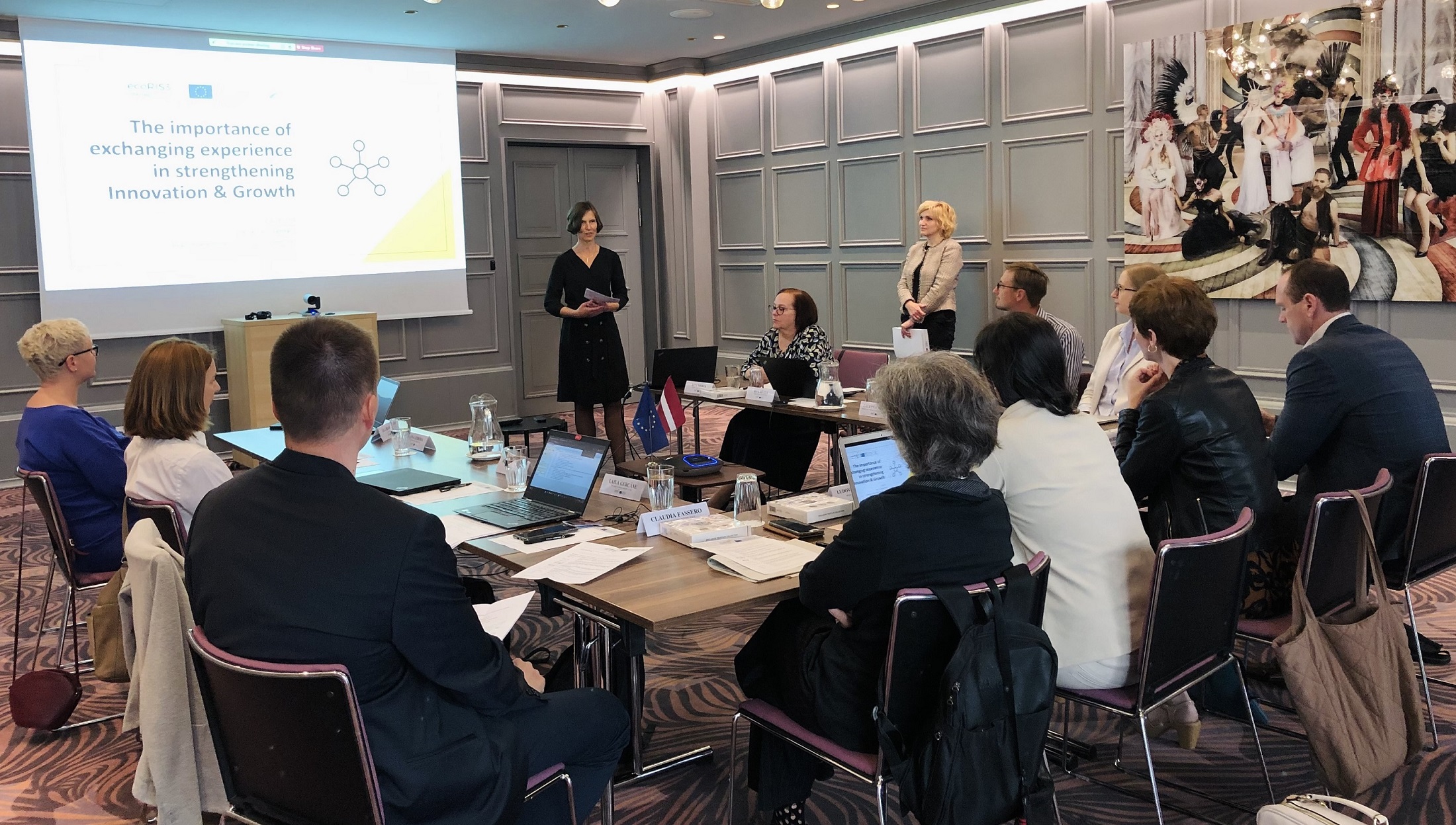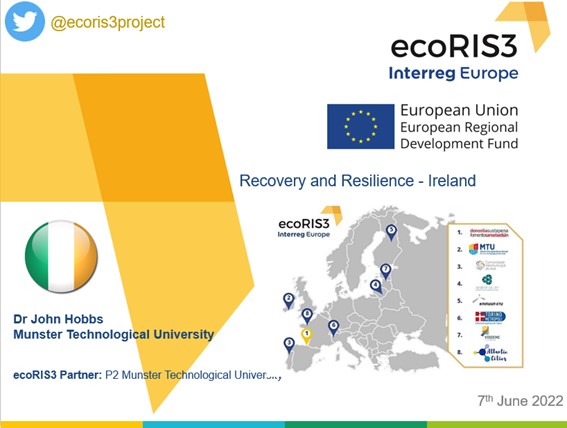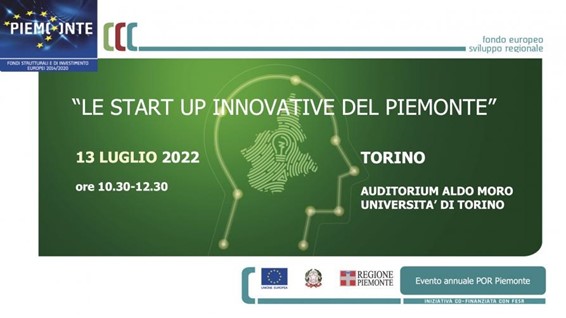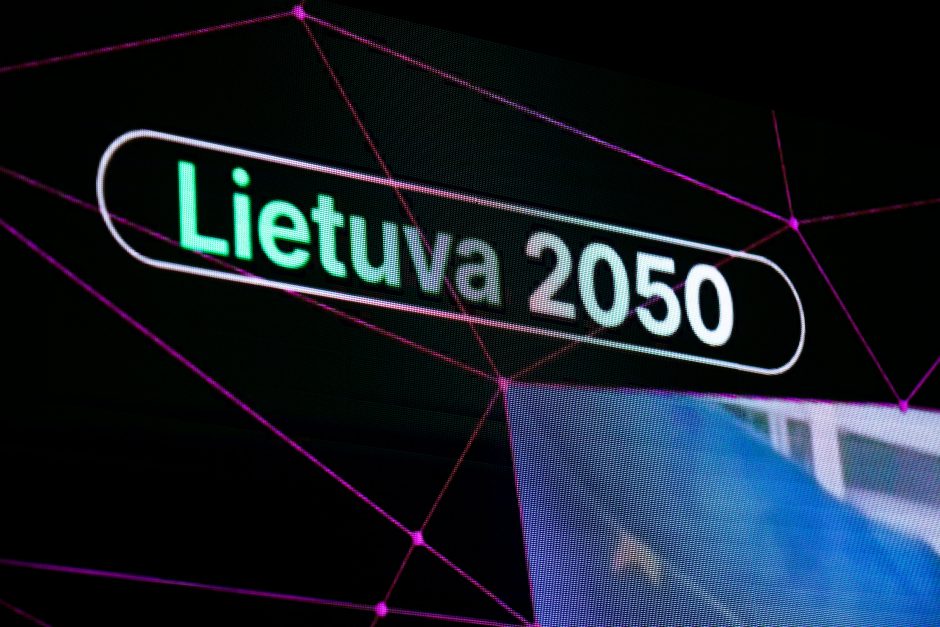€272 million – is allocated for promotion of research and innovation in Lithuania within period of 3 years, implementing strategy of smart specialization. Starting from 2014, this concept has been implemented throughout the European Union. The strategy is unique that it invests in development of research, experimental development and innovation (Lith. MTEPI) in a targeted way, focusing on priorities that reflect the strengths of the region.

© MOSTA. Peter Berkowitz, Head of Unit at Directorate-General for Regional and Urban Policy of European Commission, (DG REGIO).
Peter Berkowitz, currently in charge on implementation of financial and political strategy at the European Commission (EC), states that the strategy has already made a positive change in Europe. “Smart specialization has allowed us to start developing a strategic approach to innovation development, prioritizing research and innovation, and concentrating resources on the most relevant areas for each region. We also see smart specialization as an opportunity to bring together main stakeholders interested in development of innovation and to involve them in the process of selecting priority areas, thereby promoting greater cooperation between the private and public sectors,” says P. Berkovitz, currently in charge of Unit for Smart and Sustainable Growth in the EC Directorate-General for Regional and Urban Policy (DG REGIO).
Slowly but Accelerates
 © MOSTA. Ramojus Reimeris, head of Research and Higher Education Monitoring and Analysis Centre (MOSTA)
© MOSTA. Ramojus Reimeris, head of Research and Higher Education Monitoring and Analysis Centre (MOSTA)
According to head of the MOSTA, there are several reasons why we cannot be satisfied with the results of the strategy. “First of all, it is important to emphasize that although the program has been launched in 2014, the vast majority of funding instruments were introduced much later than expected. Therefore, the actual starting date of the program should be considered the year 2016. From this point of view, it can be stated that the program has just started to accelerate,” says Reimeris.
It is likely that the volume of investments and number of projects in the strategy will change in the course of the program. “We notice that in the priority areas, there is a closer relationship between science and business, and deepening of scientific knowledge. Also, our researches show that the timing of investment payback varies between 2 and 6 years. As a result, it is likely that the vast majority of products and outcomes foreseen in the program will be developed over the next few years. Only then we will be able to assess the first and preliminary impact of smart specialization on economy in Lithuania,” says R. Reimeris.
The Analysis Reveals the Strongest Priorities in Lithuania
While priorities showing critical mass have not been identified by analysts yet, the report already highlights priorities showing the highest performance and potential. The four main priorities show the highest efficiency and potential: molecular technologies, functional materials, laser technologies, and public health. These areas include companies such as UAB ThermoPharma, “Rubedo sistemos”, “LT Biotech” and others, as well as teams of scientists from the Centre for Physical and Technological Sciences, the Centre for Life Sciences and other scientific institutions.
“Priorities with highest performance are distinguished by the volume of attracted investments, increased cooperation between science and business, increasing human capital as well as internationally important scientific publications,” says R. Reimeris.
The priorities of transport corridors and digital construction show the lowest potential and performance. These priorities attract relatively small amount of private investment, create fewer products and service prototypes, business less cooperates with science, and limited participation of these priorities is observed in smart specialization program.
The selected directions for smart specialization help to generate a quarter of gross domestic product in Lithuania, 8.2 billion of value added. The largest share of GDP is generated by: manufacturing processes and materials (8.1% of GDP) and transport, logistics and information and communication technologies (4.3% of GDP). Also, the companies in the Smart Specializations sector also employed 41% of all the employed in the country.
The interim evaluation of smart specialization was carried out to assess the benefits of investing in priorities. Evaluation is performed by MOSTA and the Ministry of Economy of the Republic of Lithuania. The Government Program of the Republic of Lithuania states that the renewal of smart specialization directions will be carried out based on the interim evaluation and the results of the progress at the end of the year 2018. After analyzing the results of the evaluation, decisions will be made on investments in relevant directions or formulation of new thematic directions and recommendations for future priorities.
